Discovery Ambassador Program
Wildlife
Wildlife
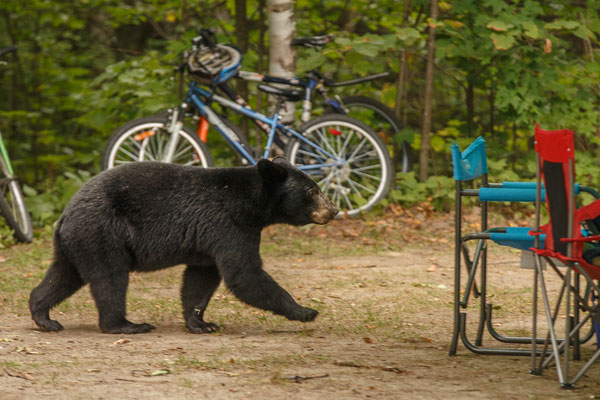
Be Bear-wise:
- Not all parks have black bears. Ask park staff if you have concerns about black bears.
- Black bears prefer to avoid people but can become bold enough to visit campsites if food scraps or garbage are left out. This can cause bear encounters.
- Prevent Encounters: You can help remove things that attract black bears to campsites. See our tips on Wildlife and your Campsite for more information
Ambassador suggestion: Learn more about being be a bear-wise visitor here!
While confrontations are extremely rare, if you see a black bear exhibiting bold behaviour and you feel threatened, follow these three steps:
- Slowly back away, giving the bear lots of space. Do not run.
- Warn others nearby of the bear in the area.
- Report to park staff.
Ambassador suggestion: For more information on how to prevent and report encounters with black bears, check out this website!
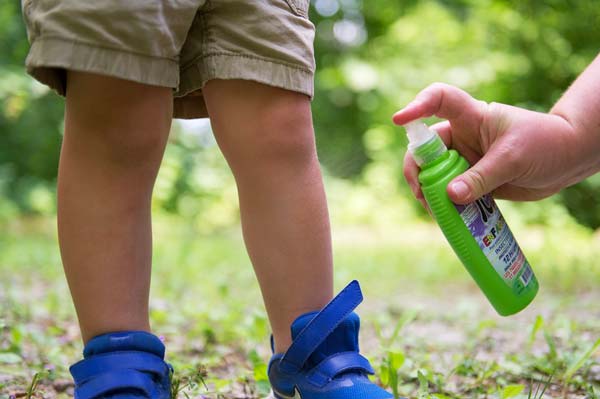
Bug Bites:
- Cover up! Wear pants and long sleeves. Light colours are best.
- Avoid wearing scented products. Insects can be attracted to scents.
- Spend time in a screen shelter or tent if you are bothered by bugs; remember to keep the doors zipped up.
- Avoid peak activity for mosquitoes (dusk and dawn).
- Use citronella candles and campfire smoke to help keep the bugs at bay.
- In areas with ticks, wear long pants tucked into socks and check regularly for ticks.
Ambassador suggestion: To learn more about the four most common bugs you may encounter, click here!
Bug repellent:
- Bug repellents containing DEET are effective at repelling mosquitoes. Avoid bug repellent with more than 30% DEET.
- Put bug repellent on clothing rather than on skin.
- Wash hands after applying repellent.
- Natural plant-based bug repellents are another option but may require more frequent application.
Kids and Bug Repellent:
- Do not use on infants younger than six months.
- Do not apply to the hands or face.
- Minimize use.
You can find information on West Nile Virus and Lyme Disease in Ontario here.
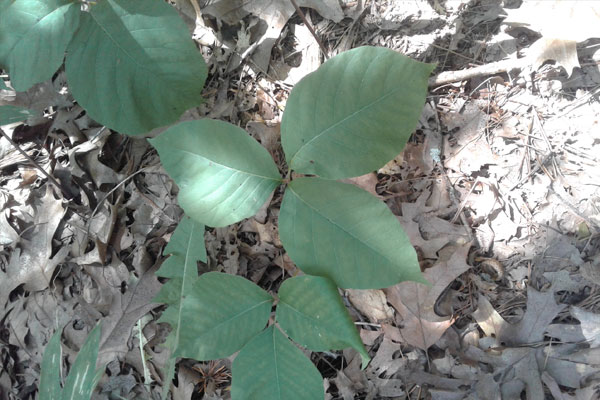
Poison Ivy:
- How to identify and avoid Poison Ivy:
- ‘Leaves of three, let them be’. The leaves can be jagged to smooth and have red colour where the three leaves meet. The plant has a woody stem and all parts of the plant have the oils that our skin reacts to. Several similar plants exist (e.g., Virginia creeper, wild raspberry).
- Not all parks in Ontario have Poison Ivy! Ask park staff.
- Stay on your campsite and designated trails to avoid exposure. If you are not sure, don’t touch the plant!
- What to do if you come in contact with Poison Ivy:
- Wash skin with cold water and soap (not warm which opens pores).
- Wash shoes, clothing and tools that have come in contact with the plant.
- Common Reactions to Poison Ivy:
- Rash usually appears within two days and can last over a week to 10 days.
- If a rash develops, you can apply calamine lotion, creams containing zinc oxide, cold compresses, or take allergy medication if the reaction is strong. Oatmeal baths can provide soothing relief.
- See a doctor if reaction is severe or if rash is not improving with treatment.
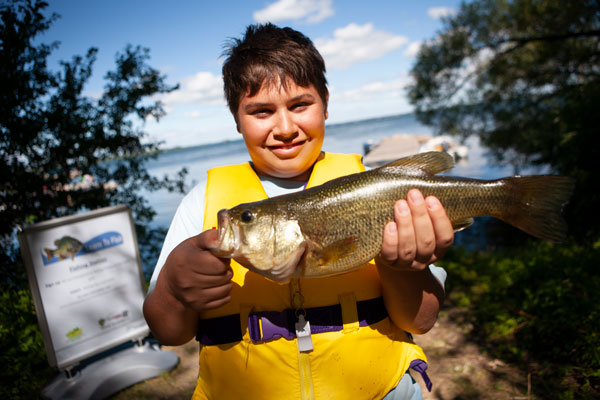
Fishing:
Catch and release fishing is a great way to spend time outdoors with friends and family. As you enjoy a day on the water, make sure to treat fish with respect. Here are some tips for keeping them safe:
- Use barbless hooks: Barbs are found at the tip of a hook and are made to keep your catch from slipping off. If you are catch and release fishing, try to get the fish back in the water as quickly as possible. Using barbless hooks, or pinching down the barb, allows for a quicker, smoother release.
- Wet your hands before touching your catch: Fish have a slime coat, which acts as protection against disease and infection. A dry hand could remove this protective layer.
- Avoid touching their gills: Fish breathe through their gills. Gills take oxygen out of the water like our lungs take it from the air. Gills are sensitive, so try not to touch them.
Ambassador suggestion: For more catch and release tips, visit these Guidelines for Anglers.
Decided to eat your catch? Here are some additional tips!
- Know the rules for how many you can keep: Check out the fishing regulations for information on catch and possession limits.
- Clean your fish for transport: When filleting and packaging your fish, leave a piece of skin large enough that it can be identified and store them in a manner that they can be counted by a conservation officer if inspected.
- Check out the Guide to Eating Ontario Fish. You can search by lake to find fish consumption recommendations.
Ambassador suggestion: For more information on fishing in Ontario, visit www.ontario.ca/fishing.
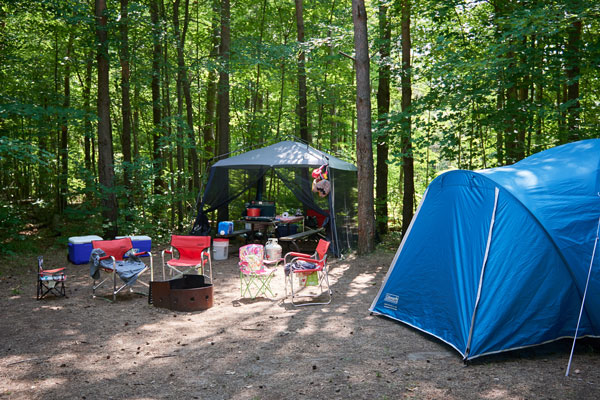
At your campsite:
While camping, you are sharing the park with the animals that live there. In general, most animals will avoid campgrounds because there is too much human activity, but raccoons, squirrels, chipmunks, and bears can become a campsite nuisance if you do not keep your campsite clean.
The best way to prevent wildlife from visiting you at night is to keep a clean campsite! Here are a few simple tips that will help prevent most wildlife issues on the campsite:
- Clean dirty dishes and dispose of dishwater: Do the dishes immediately after all meals. Used dishwater should be dumped in vault toilets (outhouses).
- Pack away your cooler and food: While on your campsite, your cooler and dry food should be SEALED AND CLOSED. At nighttime, or if you leave your campsite, always store food in your vehicle. Raccoons can open cooler latches with their nimble hands. Place food in your trunk or vehicle with the windows rolled up and your food covered.
- Dispose of garbage: Put all food waste and garbage in a garbage bag, not the fire pit. Dispose of food scraps dropped on the ground. Keep your garbage bag away from tents and out of reach of wildlife (hang from a branch or clothesline) while present on your campsite. At nighttime, or if you leave your campsite, collect ALL garbage and recycling and take it to the campground’s garbage bin or store it in your vehicle.
- Keep your tent odour-free: Never store food/snacks, fragrant personal items or hygiene products (e.g. perfumes, shampoo, toothpaste) in your tent. Never cook or eat in your tent.
- Do not keep captive critters on your campsite: Frogs and other critters (fishing bait, crayfish, worms) should not be kept around your campsite at night as they will attract raccoons. It is illegal to collect wildlife in provincial parks.
- Never leave out pet food.
- Never feed wildlife: If they learn to get food from humans, they can become a nuisance.
